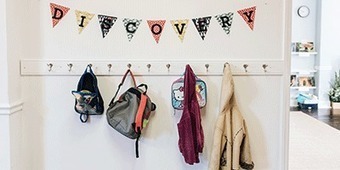If this lesson sounds rudimentary, it's because Dungan knows that these students have had fewer opportunities than many of their peers to share snacks in a classroom. They are homeschooled students who attend classes and clubs at a nonprofit learning center called Dimensions Family School (DFS). Dungan founded DFS last year with the intention of providing peer support, social opportunities, and high-quality teaching to children and parents who have opted out of the conventional educational structure.
It's a sophisticated advance on an old idea. For the roughly 2 million homeschooled children in the United States, learning doesn't necessarily entail sitting at a kitchen table all day with a parent and siblings. "Homeschoolers rely extensively on networks of the like-minded," writes Robert Kunzman, a professor of education at Indiana University and managing director of the International Center for Home Education Research. Those networks range from informal playground groups to co-ops in which parents share the teaching or occasionally hire outsiders. Some public schools also offer part-time programs for homeschoolers.
Research and publish the best content.
Get Started for FREE
Sign up with Facebook Sign up with X
I don't have a Facebook or a X account
Already have an account: Login

Leadership within education is always a challenge, but in the rapidly changing technology landscape we now work in, it seems even more daunting. I've collected some interesting reflections on educational leadership here. Enjoy!
Curated by
Peter Mellow
 Your new post is loading... Your new post is loading...
 Your new post is loading... Your new post is loading...
|









